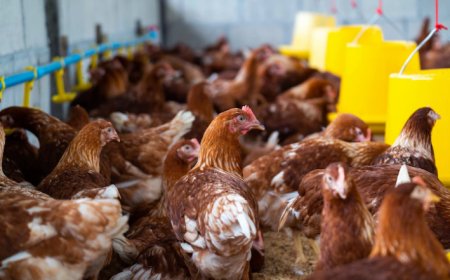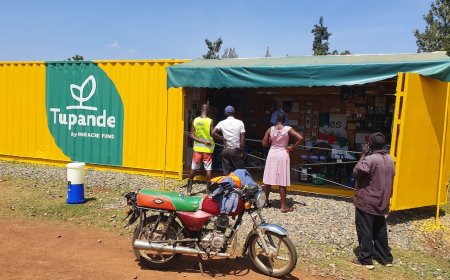Certificate in Pharmacy Kenya-What You Need To Know
Learn about the minimum qualifications and alternative pathways for aspiring pharmacy students in Kenya.

Are you considering pursuing a Certificate in Pharmacy in Kenya? Do you have questions about the requirements and where to study this program? In this comprehensive guide, we will provide you with all the essential information you need to make an informed decision about your career in pharmacy.
If you're passionate about healthcare and interested in the pharmacy field, you may be wondering about the availability of a Certificate in Pharmacy in Kenya. This article will explore the options, requirements, and alternatives for aspiring pharmacy students.
Is a Certificate in Pharmacy Offered in Kenya?
Let's address the most critical question first. As of the current regulations set by the Pharmacy and Poisons Board (PPB), accredited institutions in Kenya still need to offer a Certificate in Pharmacy. Instead, the educational system in Kenya offers pharmacy programs starting from the Diploma level and going up to the Bachelor's degree level.
Minimum Qualifications for a Pharmacy Course in Kenya
1. KMTC Diploma in Pharmacy
For those interested in pursuing a diploma in pharmacy at the Kenya Medical Training College (KMTC), the minimum requirements include:
- A Mean Grade of C plain in KCSE.
- C plain in English/Kiswahili, Biology/Biological Sciences, Chemistry/Physical Sciences.
- A C in either Mathematics or Physics/Physical Sciences.
2. Diploma in Pharmaceutical Technology in National Polytechnics
Colleges such as Kabete National Polytechnic and Kisumu Polytechnic offer a Diploma in Pharmacy program with the following qualifications:
- A Mean Grade of C (Plain) at KCSE.
- C (Plain) in Math/Physics, Kiswahili/English, Chemistry.
- A C in Biological Sciences.
3. Diploma in Pharmaceutical Technology (MKU) and Other Universities
This three-year program includes one year of pre-clinical and two years of clinical training. To be eligible, you need:
- A KCSE Mean Grade of C plain.
- A C plain in Chemistry, Biology, Mathematics/Physics, and English/Kiswahili.
4. Bachelor of Pharmacy Programme
This highly competitive course has specific entry requirements:
- KCSE Mean grade of C Plus (+) with particular grade criteria in alternative subjects clusters.
Alternative A:
- Biology – B
- Chemistry - B
- Physics/Maths - C+
- English/Kiswahili - B
Alternative B:
- Biological Sciences - B+
- Physical Sciences - B+
- Maths - C+
- English/Kiswahili - B
Other qualifications that are accepted include:
- KCSE means a grade of C+ plus a Diploma in Pharmaceutical Technology, Clinical Medicine, Nursing, Dental Sciences, or Biological Sciences from an accredited Training Institution.
- An applicant with a KCSE mean grade of C+ and a degree in Chemistry or Biological Sciences from an accredited University may also be qualified.
Exploring Other Options
Suppose you cannot meet the requirements for the pharmacy mentioned above programs. In that case, there is one more option to consider: taking a pharmacy certificate online from a foreign medical training institution. However, we strongly discourage this route because the Pharmacy and Poisons Board (PPB) doesn't recognize such online pharmacy certificate programs.
Where to Study Pharmacy in Kenya
Several universities in Kenya offer pharmacy programs recognized by the Pharmacy and Poisons Board. Here are some of the institutions where you can pursue a pharmacy course:
1. The University of Nairobi
- Duration: Five years
- Tuition Fee: Approximately KShs 475,000 per year
- Requirements: Mean grade of C+ and above in KCSE, a minimum of C+ in specific cluster subjects.
2. Mount Kenya University
- Duration: Five years
- Tuition Fee: At least Ksh 156,825 per semester
- Requirements: Mean Grade of B- and above, specific subject requirements.
3. Jomo Kenyatta University of Agriculture and Technology (JKUAT)
- Duration: Four years
- Requirements: KCSE mean grade of B- with specific subject requirements.
4. Kenya Methodist University (KEMU)
- Duration: Five years
- Tuition Fee: Approximately KShs 27,500 per semester
- Requirements: KCSE mean grade of B-, specific subject requirements.
5. Kenyatta University
- Duration: Four years
- Tuition Fee: Ranges from KShs 400,000 to KShs 515,000
- Requirements: Mean grade of C+, cluster weight of B- in specific subjects.
6. Kabarak University
- Requirements: Mean Grade of B- in KCSE, C+ and above in particular cluster subjects.
4. United States International University (USIU)
- Requirements: Average weight of B- and specific subject grades.
6. Kisii University
- Duration: 3-4 years
- Availability of online programs (subject to confirmation).
Diploma in Pharmacy
If you don't meet the requirements for a Bachelor's degree in pharmacy, you can consider a diploma program. The diploma program lasts for three years and covers essential pharmacy topics. After completing the diploma, you can register with the Pharmacy and Poisons Board as a pharmaceutical technologist. This credential, often referred to as pharm tech, opens up opportunities in the pharmaceutical industry.
Diploma in Pharmacy Requirements:
- KCSE Mean Grade of C plain
- C plain in Chemistry, Biology, Mathematics/Physics, and English/Kiswahili.
Pharmacist Salary in Kenya
Pharmacists in Kenya earn an average monthly salary of approximately KShs 140,000, with an average base pay of KShs 120,000. However, salaries vary based on experience, educational background, and employment terms.
On the other hand, pharmaceutical technologists (pharm techs) earn an entry-level base salary of KShs 35,000, with mid-level and senior-level professionals earning higher salaries. Salary negotiations often depend on the specific employer and the individual's qualifications.
READ ALSO: MKU Fee Structure for Self-Sponsored Students
Conclusion
In conclusion, pursuing a career in pharmacy in Kenya offers a wide range of opportunities for those interested in healthcare and pharmaceuticals. While a Certificate in Pharmacy is unavailable in Kenya, there are multiple pathways to becoming a licensed pharmacist or pharmaceutical technologist, including diploma and degree programs. The demand for pharmacy professionals continues to grow, making it a promising career choice in Kenya's healthcare sector.












































































